Filter by

Differential equations and numerical analysis : Tiruchirappalli, India, Janua…
This book offers an ideal introduction to singular perturbation problems, and a valuable guide for researchers in the field of differential equations. It also includes chapters on new contributions to both fields: differential equations and singular perturbation problems. Written by experts who are active researchers in the related fields, the book serves as a comprehensive source of informatio…
- Edition
- -
- ISBN/ISSN
- 9788132235989
- Collation
- xi, 165 pages
- Series Title
- -
- Call Number
- 519

Differential reynolds stress modeling for separating flows in industrial aero…
This book presents recent progress in the application of RANS turbulence models based on the Reynolds stress transport equations. A variety of models has been implemented by different groups into different flow solvers and applied to external as well as to turbomachinery flows. Comparisons between the models allow an assessment of their performance in different flow conditions. The results demo…
- Edition
- -
- ISBN/ISSN
- 9783319156392
- Collation
- -
- Series Title
- -
- Call Number
- 533.62

Reduced Basis Methods for Partial Differential Equations: An Introduction
This book provides a basic introduction to reduced basis (RB) methods for problems involving the repeated solution of partial differential equations (PDEs) arising from engineering and applied sciences, such as PDEs depending on several parameters and PDE-constrained optimization. The book presents a general mathematical formulation of RB methods, analyzes their fundamental theoretical prop…
- Edition
- -
- ISBN/ISSN
- 978-3-319-15431-2
- Collation
- -
- Series Title
- -
- Call Number
- 515.35
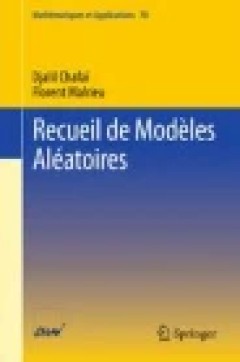
Recueil de Modèles Aléatoires
Ce recueil puise sa source dans les cours de master de mathématiques appliquées et de préparation à l’épreuve de modélisation de l’agrégation de mathématiques. Le parti pris de cet ouvrage est de polariser la rédaction par les modèles plutôt que par les outils, et de consacrer chaque chapitre à un modèle. Le premier public visé est celui des enseignants-chercheurs en probabili…
- Edition
- -
- ISBN/ISSN
- 978-3-662-49768-5
- Collation
- -
- Series Title
- -
- Call Number
- 519.24
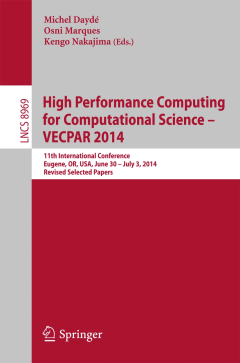
High Performance Computing for Computational Science -- VECPAR 2014
This book constitutes the thoroughly refereed post-conference proceedings of the 11th International Conference on High Performance Computing for Computational Science, VECPAR 2014, held in Eugene, OR, USA, in June/July 2014. The 25 papers presented were carefully reviewed and selected of numerous submissions. The papers are organized in topical sections on algorithms for GPU and manycores, …
- Edition
- -
- ISBN/ISSN
- 978-3-319-17352-8
- Collation
- XVII, 311
- Series Title
- -
- Call Number
- 510 HIG
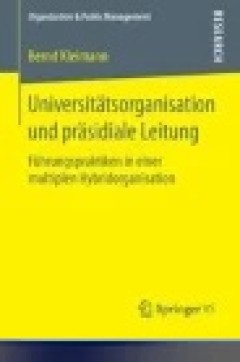
An Algebraic Geometric Approach to Separation of Variables
Konrad Schöbel aims to lay the foundations for a consequent algebraic geometric treatment of variable Separation, which is one of the oldest and most powerful methods to construct exact solutions for the fundamental equations in classical and quantum physics. The present work reveals a surprising algebraic geometric structure behind the famous list of separation coordinates, bringing together …
- Edition
- Ed. 1
- ISBN/ISSN
- 978-3-658-11408-4
- Collation
- XII, 138
- Series Title
- -
- Call Number
- 516 SCH a
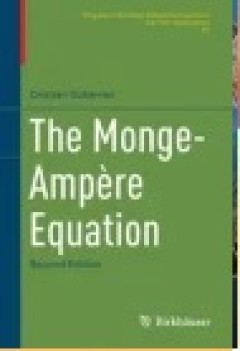
The Monge-Ampère Equation
Now in its second edition, this monograph explores the Monge-Ampère equation and the latest advances in its study and applications. It provides an essentially self-contained systematic exposition of the theory of weak solutions, including regularity results by L. A. Caffarelli. The geometric aspects of this theory are stressed using techniques from harmonic analysis, such as covering lemmas …
- Edition
- -
- ISBN/ISSN
- 978-3-319-43374-5
- Collation
- XIV, 216
- Series Title
- Progress in Nonlinear Differential Equations and Their Applications
- Call Number
- -
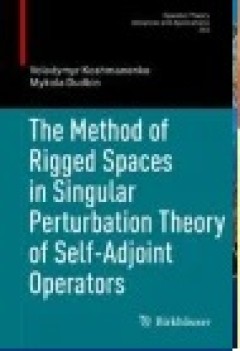
The Method of Rigged Spaces in Singular Perturbation Theory of Self-Adjoint O…
All kinds of singular interactions described by potentials supported on small sets (like the Dirac δ-potentials, fractals, singular measures, high degree super-singular expressions) admit a rigorous treatment only in terms of the equipped spaces and their scales. The main idea of the method is to use singular perturbations to change inner products in the starting rigged space, and the construc…
- Edition
- -
- ISBN/ISSN
- 978-3-319-29535-0
- Collation
- XX, 237
- Series Title
- Operator Theory: Advances and Applications
- Call Number
- -
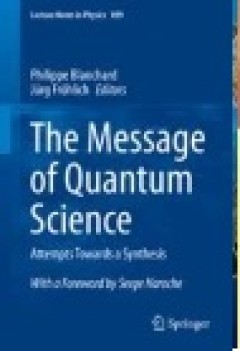
The Message of Quantum Science
In addition, whenever possible these essays take the opportunity to link foundational issues to the many exciting developments that are often linked to major experimental and technological breakthroughs in exploiting the electromagnetic field and in particular, its quantum properties and its interactions with matter, as well as to advances in solid state physics (such as new quantum Hall liquid…
- Edition
- -
- ISBN/ISSN
- 978-3-662-46422-9
- Collation
- XVIII, 348
- Series Title
- Lecture Notes in Physics
- Call Number
- -
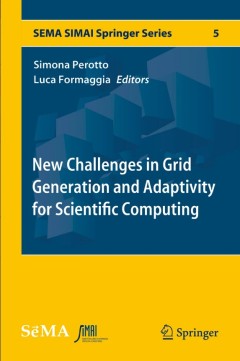
New Challenges in Grid Generation and Adaptivity for Scientific Computing
This volume collects selected contributions from the “Fourth Tetrahedron Workshop on Grid Generation for Numerical Computations”, which was held in Verbania, Italy in July 2013. The previous editions of this Workshop were hosted by the Weierstrass Institute in Berlin (2005), by INRIA Rocquencourt in Paris (2007), and by Swansea University (2010). This book covers different, though related,…
- Edition
- 1
- ISBN/ISSN
- 978-3-319-06052-1
- Collation
- VIII, 325
- Series Title
- VIII, 325
- Call Number
- -
 Computer Science, Information & General Works
Computer Science, Information & General Works  Philosophy & Psychology
Philosophy & Psychology  Religion
Religion  Social Sciences
Social Sciences  Language
Language  Pure Science
Pure Science  Applied Sciences
Applied Sciences  Art & Recreation
Art & Recreation  Literature
Literature  History & Geography
History & Geography